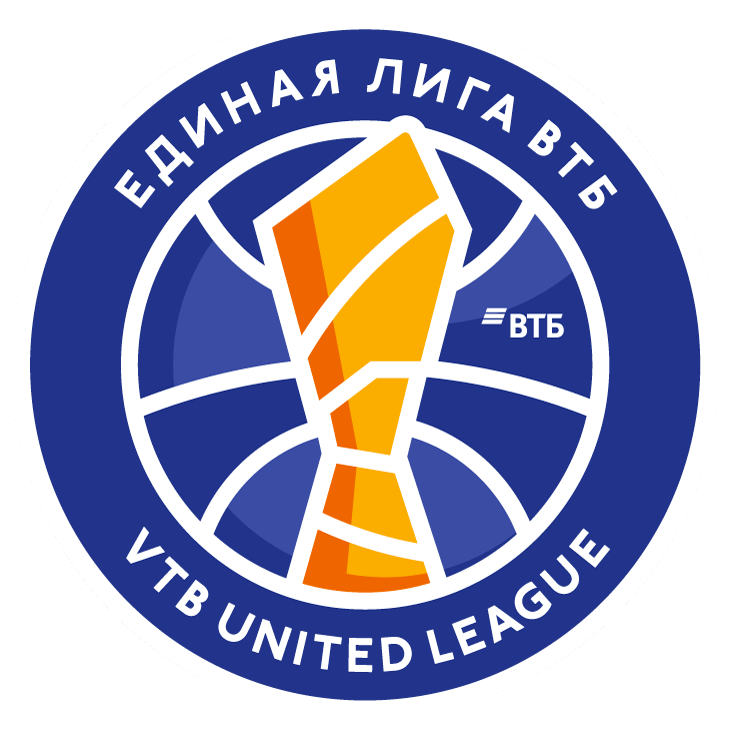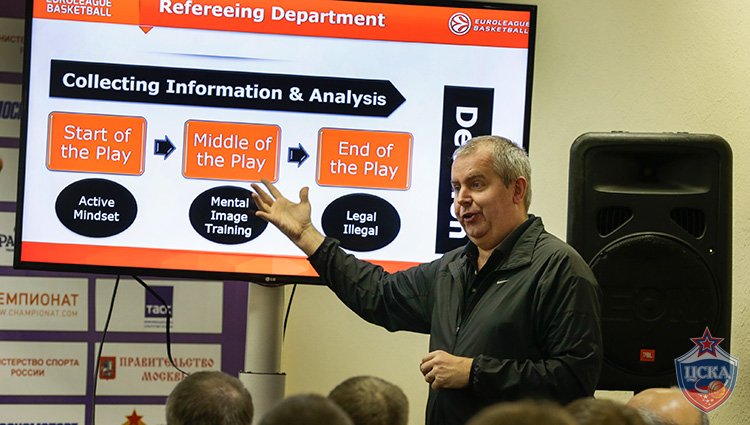The events that help developing basketball in the country are becoming good tradition for our club, including the clinics during the Gomelsky Cup. CSKA initiative was supported by RBF, the basketball federations of Moscow and Moscow Region, who helped inform and gather 70 guests.
Mr.Stokes shared his impressions of the clinic:
We had two parts of the clinic. The first one was about mechanics for three-person officiating. Most of the top-leagues around the world now use three referees for the game. There are some changes to the mechanics because the game is changing. We want the referees to be aware of these modifications because we believe that will lead to some better play-calling in the games. In the second part I spoke to the referees about the necessity to manage the game correctly. That means that you should have correct communication, interaction with coaches and players. We try to emphasize how important is it to address problems when they arrive to make sure that they have full understanding of what problems might be if the coaches are not happy or players are not happy, before making quick decision.
What are the new things this season that you try to implement in the refereeing department of Euroleague?
The biggest change is that this year we have adopted FIBA rules with regards to the competition. That means for instance that we no longer have jump balls, we go with the possession arrow. I think this is good because players and coaches are no longer thinking which competition they are playing on Wednesday or Saturday. Second, we had a head coaches meeting in Barcelona. This was a great opportunity to exchange views and ideas with the coaches. We have to understand issues that make coaches unhappy during the games and they had to understand at the same time that the referees are actually the guardians of the rules. The thing that we had to do is to make sure that the game is a technical game. We want to see physical play but we don’t want to see rough play. We want to protect the players and to make sure that we have the game of skill and not only the game of strength.
CSKA head coach Dimitris Itoudis was present during the clinic. Do you like to see coaches in the audience?
Whenever I have a refereeing clinic or conference of this kind I am always very happy to see coaches there. Dimitris is a very knowledgeable coach and he know much about officiating. During the time I know him it is clear that he understands job of the referees. And he knows the jobs not only in terms of winning the game but also in means of respecting what referees have to do. It’s nice that he was there because he actually asked a couple of very good questions related to the referees’ work and behavior. In the long perspective I see that the interaction of coaches and referees in the offseason is a very important aspect. Once the season starts it becomes more difficult. Maybe the coaches can learn something from officiating but for sure the referees can learn a lot more from coaches.
Did you interact with Russian referees? Did you like their reaction to your clinic?
I have to be honest, I’ve been to Russia a lot in the last ten years. Most of the referees in the room, I knew them, I’ve seen them on clinics for young referees in Moscow, in Rostov, all over the place. You have the good group of young referees. I think now it’s a great opportunity for Russian basketball to take this referees and put them on the path to be top referees in Europe. It is a long and difficult process but Russia is a strong country in basketball with rich tradition, so it has to have strong presence of the referees.




























